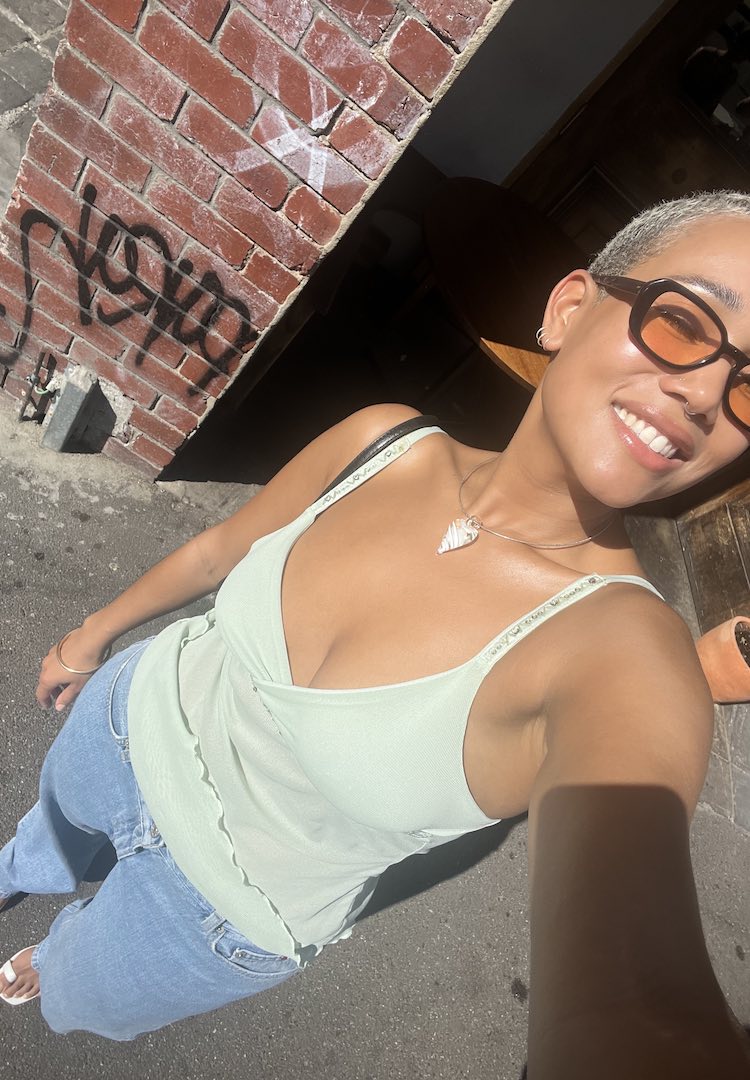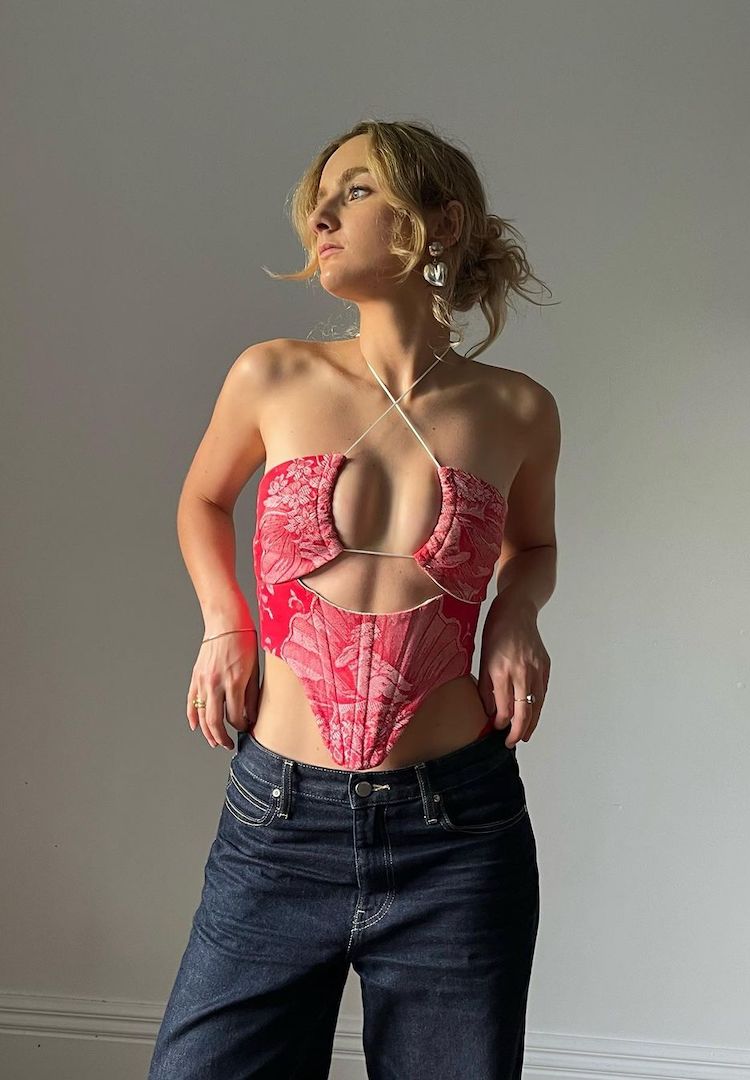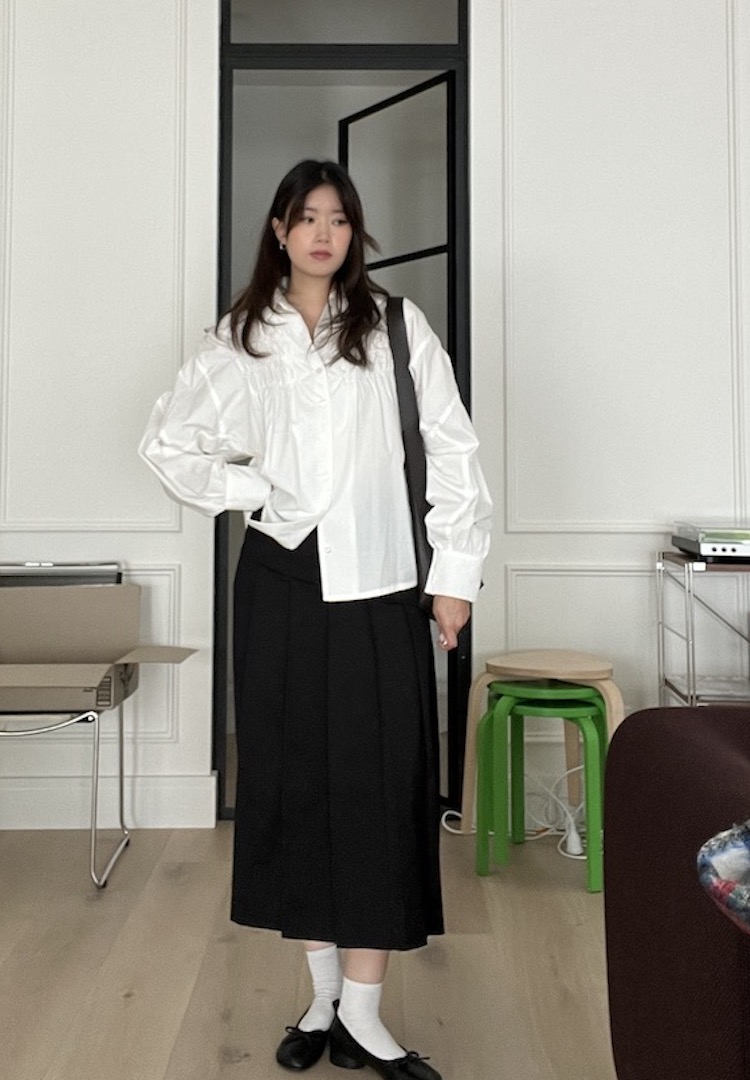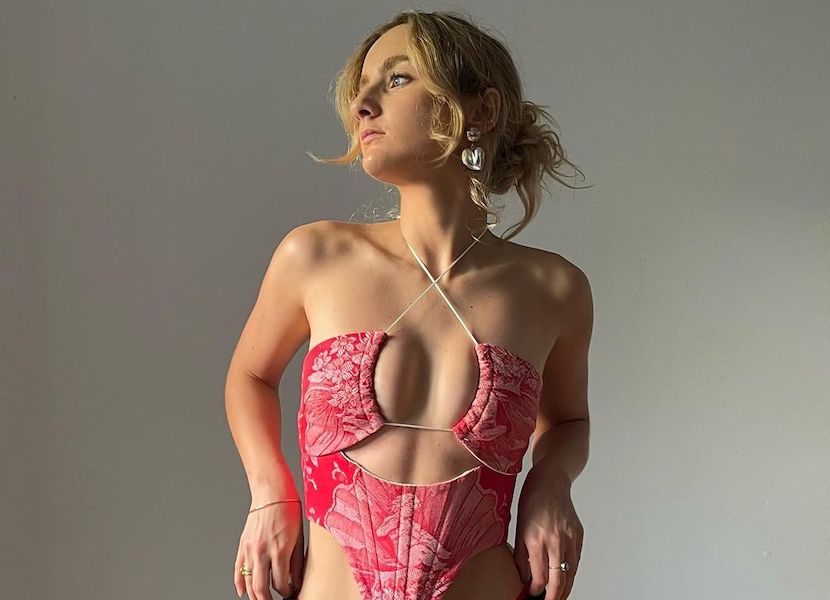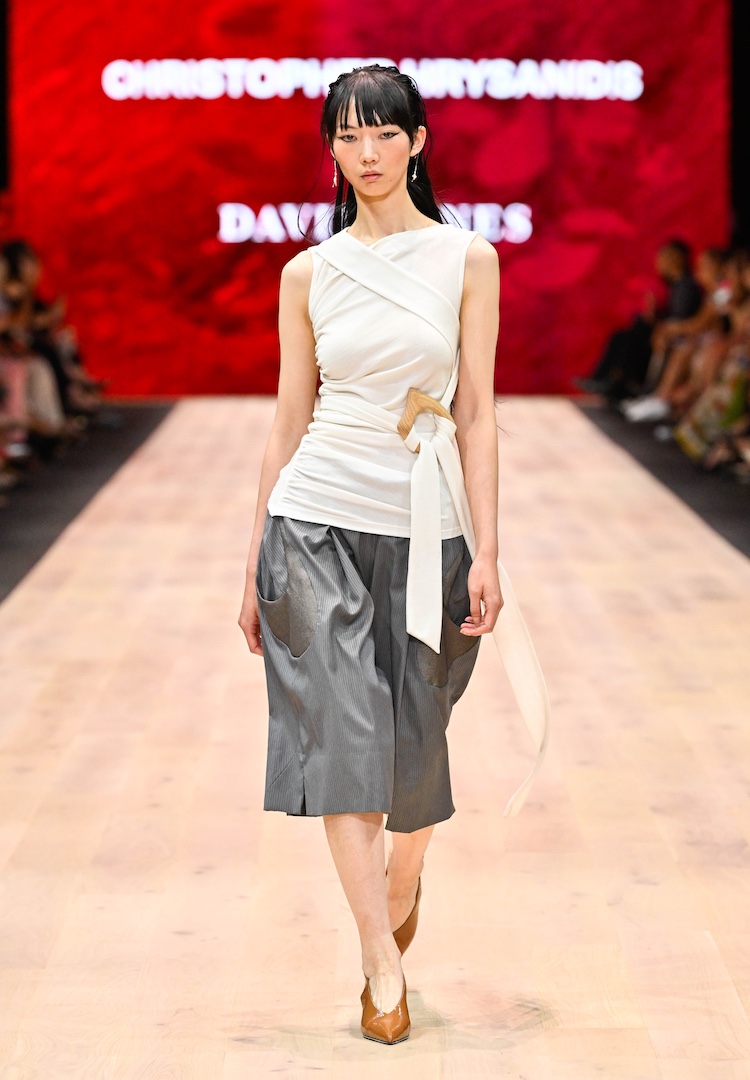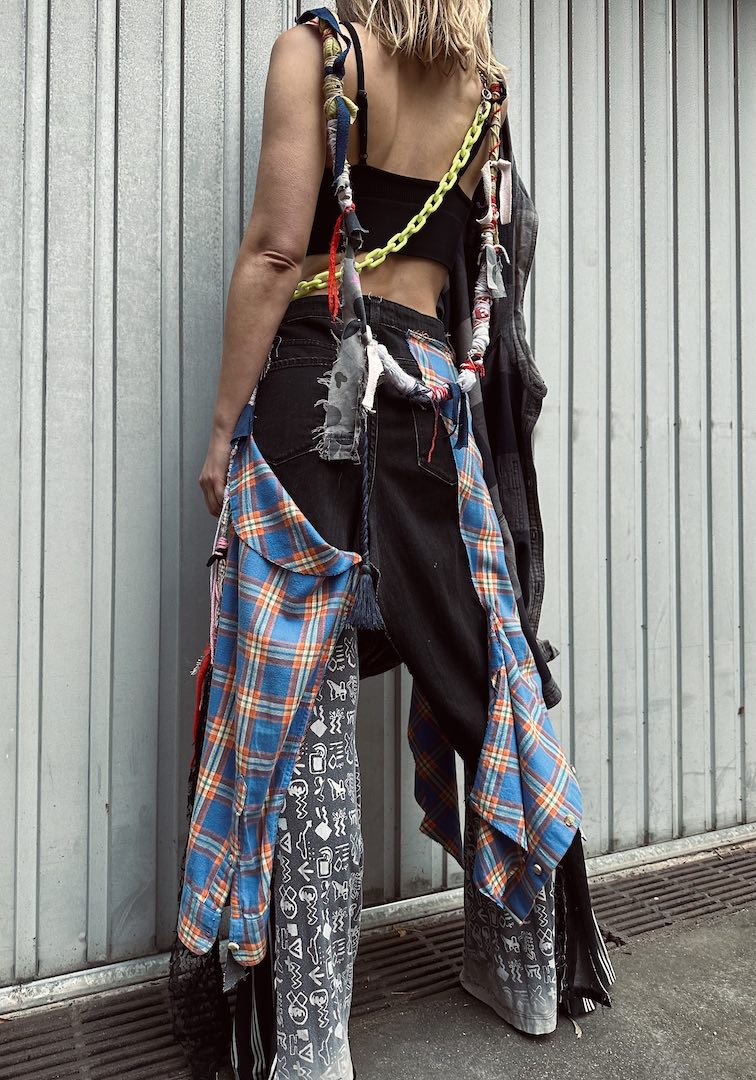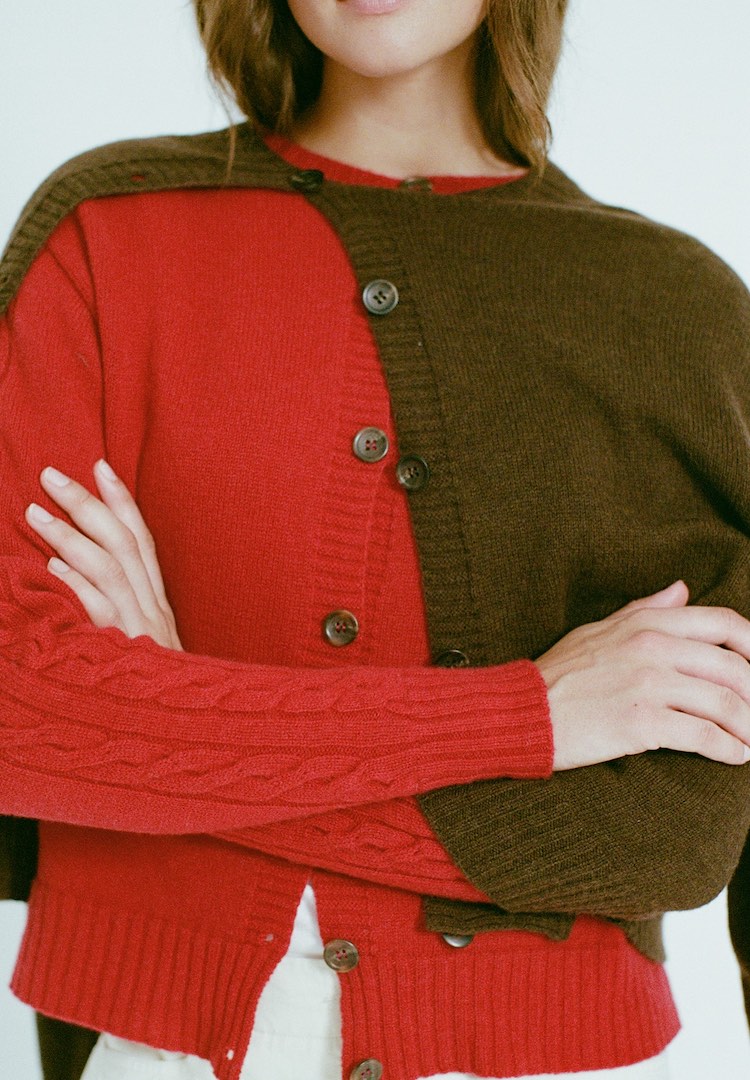Melbourne label Re.Uma makes upcycled corsets from kimonos and mattress covers
IMAGE VIA @re___umA/INSTAGRAM
WORDS BY MAGGIE ZHOU
Sustainability made sexy.
When you picture a fashion designer, it’s not often you visualise a third-year data science university student. A woman in STEM, Uma Barnes is defying stereotypes with her Melbourne label Re.Uma. Born during COVID, Re.Uma is a slow fashion label creating tops from found materials.
Everything from tea towels and curtains to tablecloths and mattress covers has the potential to be crafted into intricate corsets and button-up tops when in the hands of Uma. Driven by the threat of the climate crisis, sustainability is at the heart of Re.Uma. “Sustainability isn’t seen as a limitation or an afterthought, but rather it is the driving force behind every creative decision I make,” she says.
For more fashion news, shoots, articles and features, head to our Fashion section.
The result? One-off, carefully produced items that are made to order. Re.Uma’s signature design is as sexy as it is considered. From providing information about a fabric’s origins and sharing photos of the design process to writing customers handwritten notes, care is imbued into the label. Read on to hear more about Re.Uma’s journey so far.
Tell us about you. What’s your fashion background?
Although I don’t have any formal qualifications in fashion beyond studying textiles and design in high school, it’s always been something I’ve been passionate about. My high school teachers played a key role in imparting foundational knowledge and nurturing an early fascination with fashion. I also taught myself a lot through YouTube and from listening to countless podcast episodes with fashion designers I admire.
View this post on Instagram
Alongside Re.Uma, I’m currently in my third year of my undergrad majoring in data science at the University of Melbourne with the hopes of using my degree to pursue a career in climate change and sustainability. My degree requires a lot of analytical thinking in fields such as maths, statistics and computer science so it’s really nice to be able to balance that out with Re.Uma which serves as a creative outlet for me.
How did the label get started? Talk us through the process and the challenges.
I’d always wanted to start a fashion label and it wasn’t until lockdown that I decided to give it a real go. Over the years I continually toyed with the idea of creating my own label but the severity of the climate crisis and the key role the fashion industry plays, having one of the world’s largest carbon footprints, has always weighed heavily on my conscience.
View this post on Instagram
The idea of creating something [that]… did not need to be created, and consumed valuable resources in the process, didn’t sit right with me. But if it wasn’t for those thought processes, I don’t actually think Re.Uma would exist at all. From a design perspective, I struggle a lot with indecisiveness and having these sustainability design ‘constraints’ have really helped me narrow things down and focus on one idea at a time.
Sustainability isn’t seen as a limitation or an afterthought, but rather it is the driving force behind every creative decision I make. It forces me to find creative solutions that I wouldn’t have considered otherwise. Handmaking one-off, made-to-order pieces is very labour-intensive and time-consuming, however, I am incredibly grateful for the amount of people who genuinely appreciate and respect this process.
It was also incredibly challenging finding a manufacturer who was willing to do production runs on such a small scale and I am very grateful for my incredible manufacturer who is one of the few manufacturers who wholly supports independent designers with this vision. The same goes for my patternmaker, whose talent and support I am incredibly appreciative of.
View this post on Instagram
What were you trying to achieve from the project at the time?
I wasn’t really expecting much from it when I started. It was more of a creative outlet for me during lockdown when I had a lot of extra time on my hands and I certainly didn’t expect it to become my sole source of income. I initially made a button-up shirt out of vintage silk scarves for myself, and it wasn’t until I wore it out for the first time that I thought I could actually turn this concept into a business. It was just a fun project for me that kinda stuck I guess!
How has this evolved and what are you trying to communicate through the brand now?
I think Re.Uma has quite naturally evolved into an outward manifestation of my appreciation for Japanese culture and, more specifically, the philosophy [of] ‘wabi-sabi’. This concept encourages a more connected way of living with nature and one [that] embraces the beauty in imperfection.
View this post on Instagram
I use a lot of vintage Japanese textiles and the most expensive ones tend to be the textiles that have actually been damaged, mended and patched in an age-old process known as ‘boro’. This practice is underscored by the belief that nothing should ever be wasted and that imperfections possess their own subtle and unpretentious appeal. My whole practice [is] imbue[d with] this Japanese sensibility, a facet Western culture so often overlooks.
With the hope that people will cultivate a greater appreciation of the craftsmanship and effort that goes into each piece, I always provide insights into the fabric’s provenance, share photos of the design process and write handwritten notes. With this understanding, I think people form a more meaningful connection with their piece, encouraging them to cherish it for years to come.
Where did the name come from?
The prefix ‘re-‘ of course means ‘again and again’. Just like fashion, which constantly evolves and repeats itself… so does my label. It is about rethinking what already exists and not only utilising vintage and antique textiles as fabrics but using them as valuable sources of inspiration in their own right.
View this post on Instagram
How would you describe your brand to someone who’s never seen it before?
Unique one-off pieces carefully curated from a range of high-quality vintage textiles such as unpicked Japanese kimonos, European mattress covers, tea towels, curtains and tablecloths, each with a rich history of their own.
What are you most proud of in your work on your brand?
I think I am most proud of the way I have persevered with using vintage textiles and small-scale production runs. While opting for conventional rolls of fabric and large-scale production runs over small and hand-selected vintage panels would undoubtedly simplify the scalability of my label, I firmly believe that the beauty and inherent worth of my pieces lie in their individuality.
Each piece is an embodiment of a unique narrative, a quality I take pride in, as these stories are then passed onto their next owner. I was also a panellist earlier this year at an event discussing circularity in the textiles industry which was a pretty surreal experience for me to be talking about these important topics in today’s landscape alongside some incredibly knowledgeable and talented people.
View this post on Instagram
What do you wish you had known when you started?
Putting something out there into the world is a lot better than not doing anything and being inhibited by a fear of failure. I’ve held back on various things and have often doubted myself. You’re going to learn a lot more by putting a creation out into the world, getting feedback, figuring out what works, what doesn’t and moving forward.
Who is most exciting in the Australian fashion scene right now?
There are a lot of incredibly sustainable fashion [and] jewellery labels that continually keep popping up. I love Xanthe Ficarra, Hydra Opia, Veils of Cirrus and Kahe, just to name a few.
View this post on Instagram
What about the Australian fashion scene needs to change?
While there has undeniably been a positive shift in public consciousness towards sustainable fashion and a growing acknowledgement of the fashion industry’s role in exacerbating the climate crisis, there is still a long way to go. The term ‘sustainability’ has been heavily commodified, and its value has diminished to the point where it’s become a bit of a buzzword marketers use to greenwash consumers.
Consumerist thinking has also been exacerbated by social media platforms… But ultimately for consequential and long-lasting improvements, we need institutional and governmental policy change.
How can we buy one of your pieces?
I release limited runs of one-off pieces on my website [so] you can shop a selection of my pieces online or in-store at Sucker in Brunswick.
To check out Re.Uma’s latest drops, head here.

